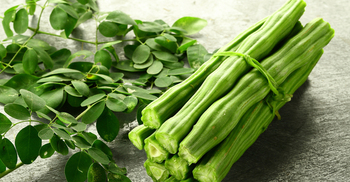Why pomegranate is a food medicine for heart, diabetes

As a fruit, having a pomegranate seems very challenging. Its hardshell exterior seems difficult to crack and then isolating the ruby-red crystal-like seeds may seem a tad tedious. But it packs so much of nutrients, antioxidants and flavonoids in particular, that it is no less than a superfood and works on several malaises in your body. It is your go-to “food medicine” and should be used as such.
Says Ritika Samaddar, Regional Head, Department of Clinical Nutrition and Dietetics, Max Healthcare, India, “The pomegranate has so many properties that it is good for reviving your body from all kinds of illnesses and even lifestyle maintenance. It is heart and brain-health friendly, is good for diabetics, is loaded with Vitamin A and C and rich in antioxidants. In fact, it is a good snacking fruit and can kill your in-between hunger pangs. Have a whole fruit full of fibre, chew the seeds and gulp it down to derive maximum benefits. Don’t have it as juice.”
How does it help in heart health?
Its creamy white to deep red colourants determine the level of antioxidants. “Like many fruit juices, pomegranate juice contains antioxidants, especially polyphenols, but at much higher levels. It contains nearly three times as many antioxidants as green tea or red wine and protects the heart by reducing the low-density lipoprotein (LDL) or bad cholesterol,” says Dr Varsha Gorey, senior clinical dietician, Head, Dietetics, Apollo Hospitals, Navi Mumbai.
Polyphenols also help fight inflammation and ageing and maintain blood flow. “When you crack open a pomegranate, you find red, juiced up arils that have a sweet but tart taste. Each aril has a small seed. A pomegranate has 83 Kcal, 13 gm of sugar, is rich in fibre and a glycaemic index (GI) of 53. It also has a lot of folate, potassium and vitamin K. But the best part is that it can block triglycerides that increase your risk of heart disease. By attacking them before they can be deposited in the body, a pomegranate keeps blockages away and even stops belly fat. A study in 51 people with high cholesterol and triglycerides demonstrated that daily pomegranate seed oil for four weeks significantly lowered triglycerides and improved the HDL-LDL ratio. Its potassium and magnesium content helps in lowering hypertension and blood pressure (BP). Its essential fats aid digestion and relieve constipation, maintaining gut health,” adds Dr Gorey.
A 2017 review in Pharmacological Research of eight clinical trials showed that pomegranate juice reduced systolic and diastolic blood pressure, thereby sealing its place as a heart-healthy food.
How does it help in diabetes?
“Considering that it is a reservoir of insoluble dietary fibres, consuming the fruit leads to better insulin management,” says Samaddar. Over the last decade, various studies have linked pomegranate with Type 2 diabetes prevention and treatment. A study has identified how pomegranates work on Type 2 diabetics by reducing their oxidative stress and lipid peroxidation. It showed how fasting blood glucose levels decreased significantly with punicic acid, methanolic seed extract and pomegranate peel extract. Known compounds in pomegranate, punicalagin, ellagic, gallic, oleanolic, ursolic, uallic acids and tannins have been identified as controlling diabetes. A study in people with diabetes in 2014 demonstrated that daily pomegranate juice consumption lowered inflammatory markers by about 30 per cent.
How is pomegranate anti-inflammatory and fights chronic diseases, cancer, osteoarthritis and rheumatoid arthritis?
Studies in 2013 and 2014 have shown that pomegranate extract can reduce inflammatory activity in the digestive tract, in breast cancer and colon cancer cells. Some laboratory studies have shown that pomegranate extracts can slow down cancer cell reproduction and can even cause apoptosis (cell death) in cancer cells. “Studies have found pomegranate juice to impact concentrations of C-reactive protein and IL-6 biomarkers in patients with inflammatory diseases. Pomegranates are anti-bacterial and anti-fungal and are good for oral cavity health,” says Dr Gorey.
How pomegranates increase stamina
As the fruit is rich in dietary nitrates, it can boost energy levels. A study of 19 athletes in 2014 demonstrated that pomegranate extract taken before exercise significantly enhanced blood flow and delayed fatigue.
The fruit works wonders on an ageing population. A study in Nature Metabolism showed that urolithin A, a compound in pomegranates, improves the functioning of mitochondria — the cells’ powerhouses.
When and how should I have pomegranates?
Luckily, Indians have traditionally used pomegranates in their diet as a fruit serving, as a dribbling on dishes and as juices. “It makes an ideal in-between food when you feel hungry and is an ideal mid-morning and mid-evening snack. You can have them as smoothies and as a topping on your salad bowl. Try taking it whole. Juice should only be given to the sick, who have no appetite, or geriatric people,” advises Dr Gorey.
Source: The Indian Express







